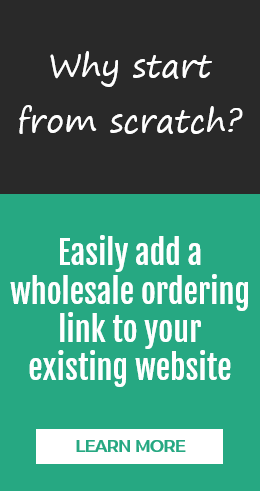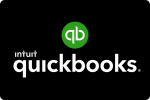 Innovative technology is changing the way businesses operate and how they interact with customers. This is a simplistic statement, which means different things to different industries. For wholesalers, distributors, and manufacturers, this means an upgraded customer-facing interface with practical implications. Meeting customer expectations for retailers vs. wholesalers involves the difference between their integrated order management systems.
Innovative technology is changing the way businesses operate and how they interact with customers. This is a simplistic statement, which means different things to different industries. For wholesalers, distributors, and manufacturers, this means an upgraded customer-facing interface with practical implications. Meeting customer expectations for retailers vs. wholesalers involves the difference between their integrated order management systems.
Customer-Facing for Retailers vs. Wholesalers
Online shopping has become a reliable, convenient, and quick way for customers to shop; mobile technology has taken this trend to another level. Retailers, in order to keep pace, have responded quickly to the transition, by offering mobile apps and inbound marketing automation. Their customer-facing ecommerce stores are integrated within all business systems, and are designed to delight and enhance the ordering experience.
Wholesalers, not catering to B2C, have been slower to respond to the technological shift when it comes to customer-facing ordering. While their QuickBooks, WMS, and even CRM systems are in place, their ecommerce platforms lack the full integration and optimization needed to keep pace. This is a problem because B2B customers have a growing need for customized and enhanced order management systems.
Customer-facing, when it comes to B2B, means integrating order management systems with a QuickBooks, in order to offer: order history, customized ordering specifics, real-time price and availability, 24/7 access through customer portals, shipping status, ability to review account information, and view of advanced inventory.
Retailers need a customer-facing ecommerce store with marketing appeal; wholesalers need a customer-facing ecommerce platform with detailed ordering and inventory information customized for each B2B customer. What this means is: upgraded order management systems need to be integrated with QuickBooks Desktop.
B2B customer expectations when ordering are more practical, while retail customers need to be convinced and influenced. Practical, in this sense, means offering a streamlined method for B2B customers to access the information needed, which means wholesalers must upgrade their standard ecommerce platforms.
Upgrading Ecommerce Platforms
Distributors, manufacturers, and wholesalers using QuickBooks Desktop can upgrade their ecommerce platforms with a simple order management system add-on. This QuickBooks add-on is the ordering system upgrade wholesalers need, in order to give B2B customers the practical ordering information they need.
This SaaS add-on provides two-way integration with QuickBooks and automation with WMS. This means ordering processes will be integrated from start to finish, reducing manual controls and re-entry.
Inventory, warehouse, fulfillment, and ordering will be integrated with 24/7 automation and access. Using cloud computing, B2B customers and sales reps will have customized portals with detailed real-time inventory and ordering information.
Affordable Solution for SMBs
Small and medium-sized businesses don't need a costly enterprise makeover, rather they need a simple QuickBooks order management system upgrade. This simple SaaS add-on is an affordable method for wholesalers to upgrade their QuickBooks' ecommerce platform, in order to meet B2B customer expectations and needs.
The fulfillment integration with WMS and QuickBooks greatly enhances B2B ordering; customers will have: more flexibility, greater accessibility, detailed ordering and account information, and real-time reliability with prices and inventory. This greatly streamlines the ordering process for B2B customers, who have their own customer expectations to meet – forcing them to demand more from their wholesalers.
Summary
The ever-changing digital landscape is transforming the ways businesses and customers interact, creating challenges and opportunity. Wholesalers and retailers are both adapting by upgrading their customer-facing ecommerce stores and platforms, but the difference of how is determined by the type of customers they serve. Integrating complex business systems around customer expectations, involves customized strategies for each.
Distributors, manufacturers, and wholesalers want to attract and retain B2B customers with an easy-to-use practical order management systems. What this means today is an upgraded ecommerce platform: integrated with QuickBooks and WMS. This provides B2B customers with practical account information, such as: ordering history, real-time inventory and pricing, and shipping status; and with 24/7 accessibility, streamlined ordering processes are achieved.
The good news for wholesalers is this upgrade is affordable and convenient; it not only benefits B2B customers, but also: sales reps, managers, and the entire field-force. Using a SaaS add-on, designed specifically for QuickBooks, wholesalers will meet and exceed B2B customer expectations.





